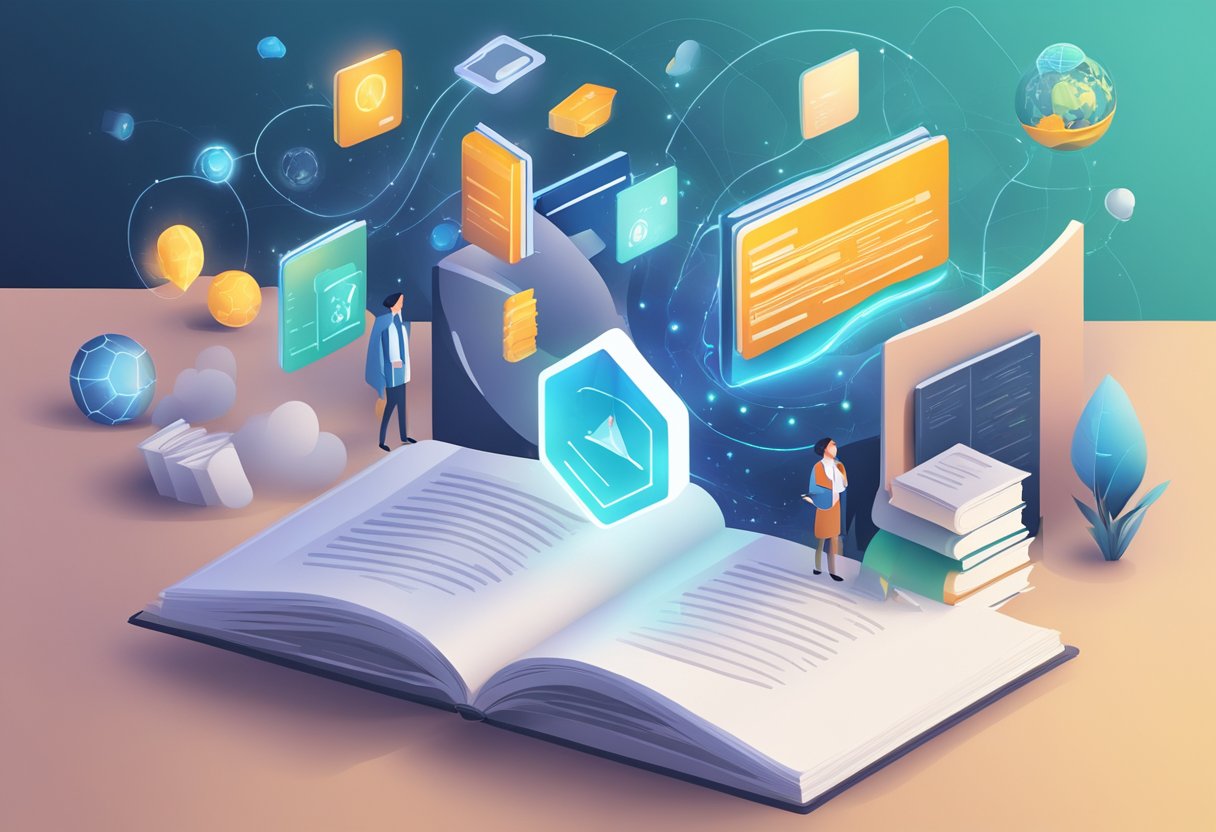The landscape of education is being reshaped by artificial intelligence, often referred to simply as AI, bringing new opportunities for personalized learning and teaching efficiency. Educators are increasingly looking for resources to understand the integration of AI into the classroom, its capabilities, and its implications. From primary school to higher education, AI technologies provide diverse ways to enhance the learning experience, presenting both challenges and advantages unique to the digital age.
As AI continues to evolve, the importance of familiarizing oneself with the ethical considerations and the future outlook of these technologies grows. Recognizing AI’s potential for positive impact, educational resources ranging from online courses to interactive tools are now more accessible. These resources not only introduce educators and students to AI’s foundational concepts but also supply practical strategies to leverage AI for educational advancement.
Key Takeaways
- AI technologies are transforming education with personalized learning and efficiency
- Accessible educational resources offer strategies to use AI in teaching
- AI’s educational integration highlights the importance of ethical considerations
Understanding AI and Its Educational Impact
Artificial Intelligence (AI) is reshaping education, offering opportunities for personalized learning and operational efficiencies. It’s crucial for students and educators to grasp AI’s capabilities and its limitations.
AI Basics and Jargon
To start, one needs to demystify the terms associated with AI. It ranges from machine learning, where computers learn from data, to natural language processing that helps computer programs understand human language. This jargon is the entry point to grasping how AI can support personalized student experiences by adapting to individual learning styles.
AI’s Role in Modern Education
In the classroom, AI has moved from a novelty to a powerful tool. It auto-grades assignments, personalizes education through adaptive learning platforms, and can foster critical thinking by providing simulations and models that students would otherwise not access. UNESCO highlights AI’s potential to innovate teaching and learning, yet also notes the necessity of navigating the associated risks and challenges.
Challenges and Misconceptions
While AI brings numerous benefits, it is not without its challenges. One significant concern is the potential for bias if AI systems are trained on unrepresentative data sets. Additionally, misconceptions can arise — like the belief that AI can fully replace human educators, which overshadows the real, collaborative role AI is meant to play. It is essential to balance the use of AI tools while maintaining a curriculum that promotes human-centered skills like empathy and ethics.
AI Tools for Teaching and Learning
With the advent of artificial intelligence, teachers now find a plethora of tools at their disposal that can transform and streamline the educational experience. From tailoring curriculum to engaging students, AI tools are revolutionizing teaching and learning practices.
AI-Powered Educational Platforms
Teachers seeking innovative ways to present course material might look into various AI-powered educational platforms. These platforms use AI to personalize learning experiences, offering diverse content tailored to individual student needs. For instance, the use of AI Writing and Content Creation Tools can enhance the ways educators approach creativity in their lessons by generating prompt-driven written content or offering grammar suggestions.
Integrating AI in Lesson Plans
The integration of AI within lesson plans is another leap forward for educators. AI-assisted lesson-development tools, such as Educeaide.Ai, provide teachers with over 100 resource types, empowering them to craft high-quality, interactive, and diverse instructional materials. These platforms can translate content into multiple languages, making lessons accessible to a broader range of learners.
Supporting Educator and Student Engagement
AI tools also act as a cornerstone for supporting educator and student engagement. By employing tools like chatbots as AI tutors, students can receive immediate, personalized assistance. These AI tutors ask questions one at a time and may help students explore topics at their own pace, ensuring active learning and retention. Additionally, quizzes generated through AI can assess student learning efficiently, helping educators identify areas where students may need further support.
AI Resources for Programming and Development
When diving into the world of AI, it’s crucial for students and developers to grasp the fundamentals of programming languages like Python, along with an understanding of AI models and frameworks such as TensorFlow.
Learning Python and TensorFlow
For those starting out, Python is a must-know language, as it’s the lingua franca for AI development. Platforms like DataCamp offer not only Python courses but also specialized tracks on deploying machine learning models using TensorFlow.
- Python Basics: Essential for all beginners.
- TensorFlow Courses: Offer insights into how to bring AI models to life.
Using AI Models in Research
Researchers and scientists can leverage platforms like Colab.research.google to experiment with AI models. It simplifies the process of writing and executing Python code, allowing for practical, hands-on experience.
- AI Models: Use pre-built or create your own.
- Python Ecosystem: Integrate with libraries for comprehensive research possibilities.
Ethical Considerations and Future Outlook
As educational institutions adopt AI technologies, understanding the ethical landscape is crucial. Issues of data privacy and trust need navigating, while the emergence of generative AI tools demands a forward-thinking approach to education.
Data Privacy and Trust Issues
In the realm of AI in education, safeguarding data privacy is paramount. As students interact with AI systems, their personal information can be exposed to risks. For example, Wharton Interactive’s use of AI in simulating real-world business challenges must ensure that student data is protected and that clear consent policies are in place. Trust, in this context, hinges on transparency — students need to know how their data is used and stored.
Preparing for Generative AI in Education
The rise of generative AI technologies such as GPT-4 beckons a new era in educational resources. Educators must prepare curricula that foster critical thinking and discernment in the use of these tools, ensuring that generative AI serves to enhance the learning experience rather than undermine it. Wharton Interactive and other institutions have the opportunity to pioneer educational models that integrate generative AI, while also addressing potential risks, such as the creation of misinformation or reliance on automated content generation.



